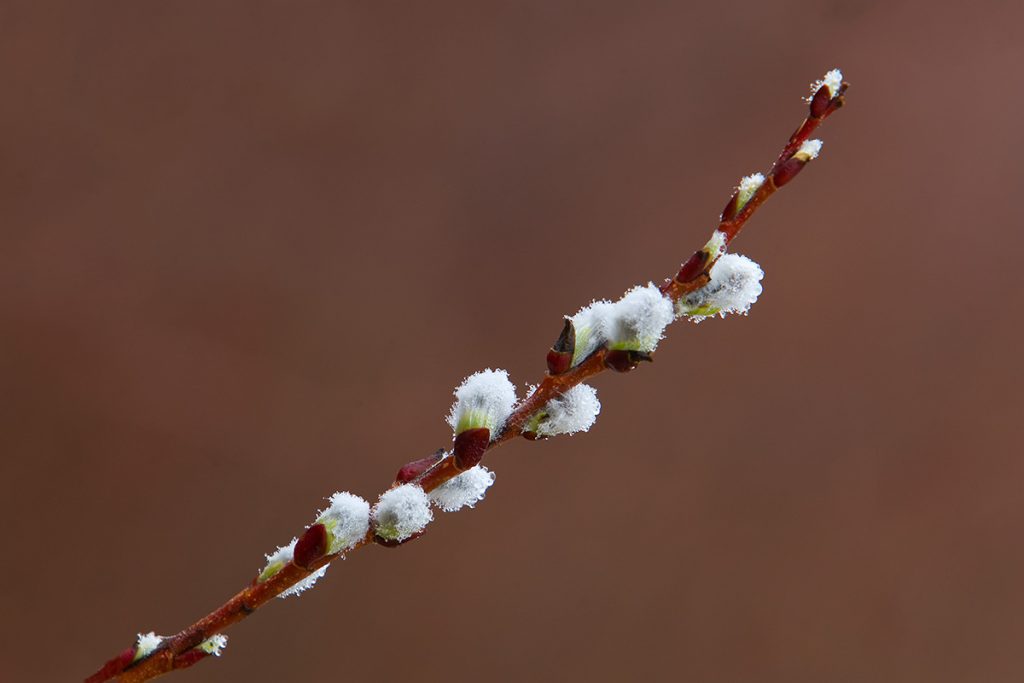Spring is an amazing time of year. When anything seems possible in the natural world. Landscapes that have been covered in snowy blankets and frozen solid for months start to come alive. First, as the snow melts, the frozen ground can’t take in the moisture and on a sunny day puddles and small rivers of melt water form on compacted surfaces. In the garden I start to look for any sign of new growth, bright green leaves poking out of the mulch. In the marsh I look for Skunk Cabbage, a delightful plant that often blooms before thaw because the flower can generate its own heat! Birds are vocal harbingers of spring, at our house male Red-winged Blackbirds show up in March and announce their arrival with a strong ‘ok-a-reeee’. As each day passes the sun stays for a few more minutes and the morning song of the American Robin, ‘cheer up cheerily’ begins earlier and earlier. This call is the first thing I hear each morning, Robin cheerily waking me to meet the day.

The gift of spring in SW Michigan fills me with so much joy. What can I do to thank Nature for the gift of spring? Robin Wall Kimmerer often writes and speaks about reciprocity, the act of giving back or returning the gift. She explains that reciprocity with the Earth and nature begins with gratitude. I’ve been thinking about reciprocity for a while and trying to make a mental list of things I could do to thank the Earth. I was stuck on physical acts, like planting native plants and trying to minimize my impact by limiting fuel consumption and preparing vegan meals. While these are important acts, they don’t seem like gratitude – they just seem responsible. In Kimmerer’s Braiding Sweetgrass she explains that one of her acts of reciprocity with the Earth is her writing and sharing her stories with others. Now I’m beginning to understand that acts of reciprocity with the Earth do not need to be physical or related to resource consumption, they can be about sharing.
Yesterday, my three year old son and I took a walk after dinner on the dirt road across from our house. This walk allows us to walk a two mile loop along a country road dotted with rural homes and through a lake and marshy area with great wildlife. It was chilly last night so the birds and frogs that had been calling earlier this week were quiet. Alex, always curious about objects in the sky (and his looming bedtime) asked, “is the sun going nigh-nigh?” “Not yet”, I said, “we have a bit more light to enjoy.” About halfway through our walk I noticed a willow shrub, with its velvety buds poking out of the stems. These buds are known as Pussy Willows because they resemble little furry kittens. “Alex, do you want to meet the Pussy Willow? Here touch the buds. How do they feel?”, I say. “Oooh soft”, Alex marvels as his small fingers gently poke at the buds. What a lovely gift from nature, these small, soft buds of spring. Then I realize, I am showing gratitude and reciprocating nature’s gift by teaching. Sharing the Pussy Willow with Alex is teaching him about the natural world, sharing a simple spring time joy that he can look for every year. Teaching about nature and in the outdoor world is how I show gratitude for the Earth and is an act of reciprocity.
Kimmerer, R. W. (2013). Braiding sweetgrass. First edition. Minneapolis, Minnesota: Milkweed Editions.
Kimmerer, R. W. (2013, October 1), Returning the Gift. Center For Humans & Nature. https://www.humansandnature.org/earth-ethic-robin-kimmerer